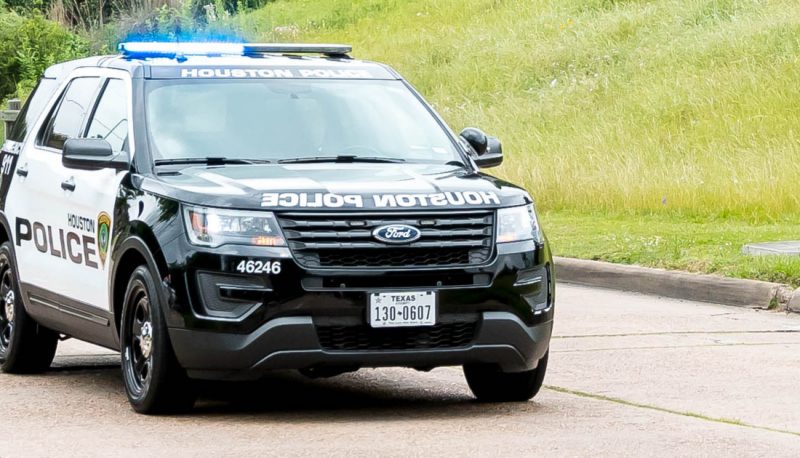“Our Courts, Our Fight” is a blog series documenting the harmful impact of President Trump’s judges on Americans’ rights and liberties and the need for the Senate to confirm President Biden’s federal court nominees to help counteract these effects . Supreme and appellate court cases in the series can be found by issue and by judge at this link.
Trump Seventh Circuit judge Amy St. Eve wrote a decision for the full court, also joined by Trump judges Michael Brennan, Thomas Kirsch, and Michael Scudder, which reversed a previous ruling and upheld an extended police traffic stop of a Black man that was primarily a pretext to search for drugs. As the dissenters pointed out, the decision allows police to conduct such stops and extended questioning that generally “produce little gain in terms of law enforcement” but effectively “harass and humiliate” drivers and passengers, all too often on a “racially discriminatory” basis. The December 2021 decision was in US v Cole.
Illinois State Trooper Clayton Chapman got a message from a deputy sheriff about a car he thought was suspicious heading in Chapman’s direction on an interstate highway. The car was a Volkswagen hatchback being driven by a Black man, Janhoi Cole, which the sheriff claimed was suspicious primarily because it was travelling 15-20 mph under the posted speed limit of 70 mph. Chapman trailed Cole, as he later admitted, “with the intent to catch him in a traffic violation to provide a pretext for a roadside stop.” After some time, Chapman observed Cole following too closely behind another car that had cut him off, and so stopped Cole for that minor traffic violation. After obtaining basic information from Cole, some of which he had already secured by radio, Chapman prolonged the stop and questioned Cole in his police car about topics not directly related to the traffic violation, such as the details of Cole’s travel plans. After about eight minutes, Chapman told Cole he would simply give him a warning, but wanted Cole to trail him to a nearby gas station to complete paperwork.
In fact, as he later admitted, Chapman had decided that he was “not going to let Mr. Cole go” until he arranged to “search the car for drugs,” and radioed for a drug-sniffing dog to be at the gas station. Chapman learned by radio that Cole had been arrested on a drug possession charge some 15 years earlier, and continued to question Cole and give him a warning about driving too closely to another car. At that point, Chapman told Cole that he was not free to leave because he was suspected of transporting drugs, the police dog detected drugs, and Cole was arrested for illegal drug possession. Cole moved to suppress the results of the stop and search, but that motion was denied.
On appeal, a panel of the Seventh Circuit ruled that the prolonged stop was improper under the Supreme Court’s decision in the Rodriguez case, which held that a police stop “exceeding the time needed to handle the matter for which the stop was made violates the Constitution.” Trump judge Amy St. Eve dissented, and when the full court decided to rehear the case, she wrote a 7-3 decision that effectively reversed the previous decision and upheld the stop and search. She and Trump judges Kirsch, Brennan, and Scudder were the deciding votes in a 7-3 decision. St. Eve claimed that despite Rodriguez, other courts had subsequently upheld “travel plan questions” as part of a “traffic stop,” and that Chapman’s questions and other conduct was “reasonable” in this case. The majority also held that in general, such questions about itinerary and travel plans “ordinarily fall within the mission of a traffic stop.”
Judge David Hamilton strongly dissented joined by two other judges, including Judge Ilana Rovner, who was nominated by President George H.W. Bush. Hamilton acknowledged that in some traffic stops, travel plan questions are “relevant” and proper. But as Rodriguez instructed, he continued, whether this is so depends on the specific reason for the stop, and it was not the case here. Instead, Hamilton wrote, “the officer prolonged the stop by questioning the driver at length and in detail on subjects beyond the legal justification for the stop,” including “detailed, repetitive, and intrusive questioning” about Cole’s itinerary that “went far beyond” a “quick and routine” question or two.
The dissent was particularly concerned about the broader implications of St. Eve’s opinion. The majority’s adoption of a general presumption that such questioning is proper during any traffic stop until the officer is satisfied, Hamilton explained, violates Rodriguez and effectively authorizes police to “subject almost any motorist to similar interrogation, delay and humiliation” while generally producing “little” law enforcement gain. Hamilton discussed a number of cases and studies that make “clear,” he continued, that police already “use these tactics to stop, search, and even humiliate large numbers of innocent drivers,” and that “these tactics are used disproportionately on Blacks and Hispanics.” In short, Hamilton concluded, “the majority’s approach invites unreasonable restraints on liberty” by police, which are likely to particularly victimize minorities. The case is yet another example of the importance, as part of our fight for our courts, of encouraging the Senate to continue to confirm fair-minded judges who can counteract the votes of Trump judges like St. Eve and will respect constitutional principles that can help prevent and remedy police misconduct.

